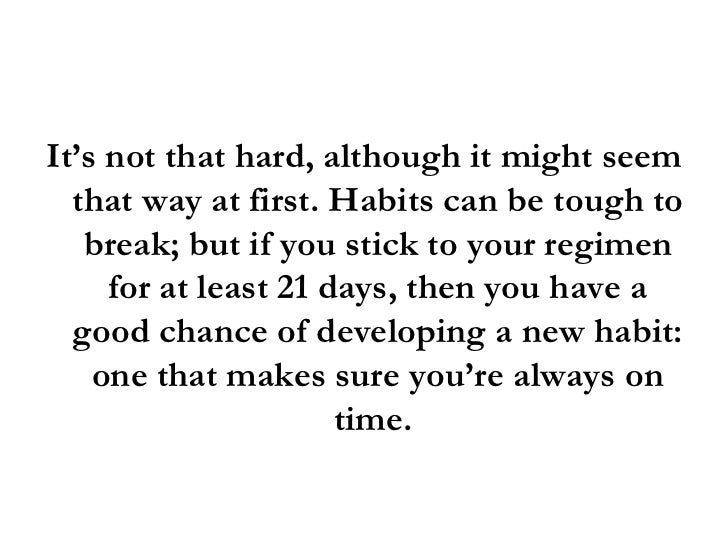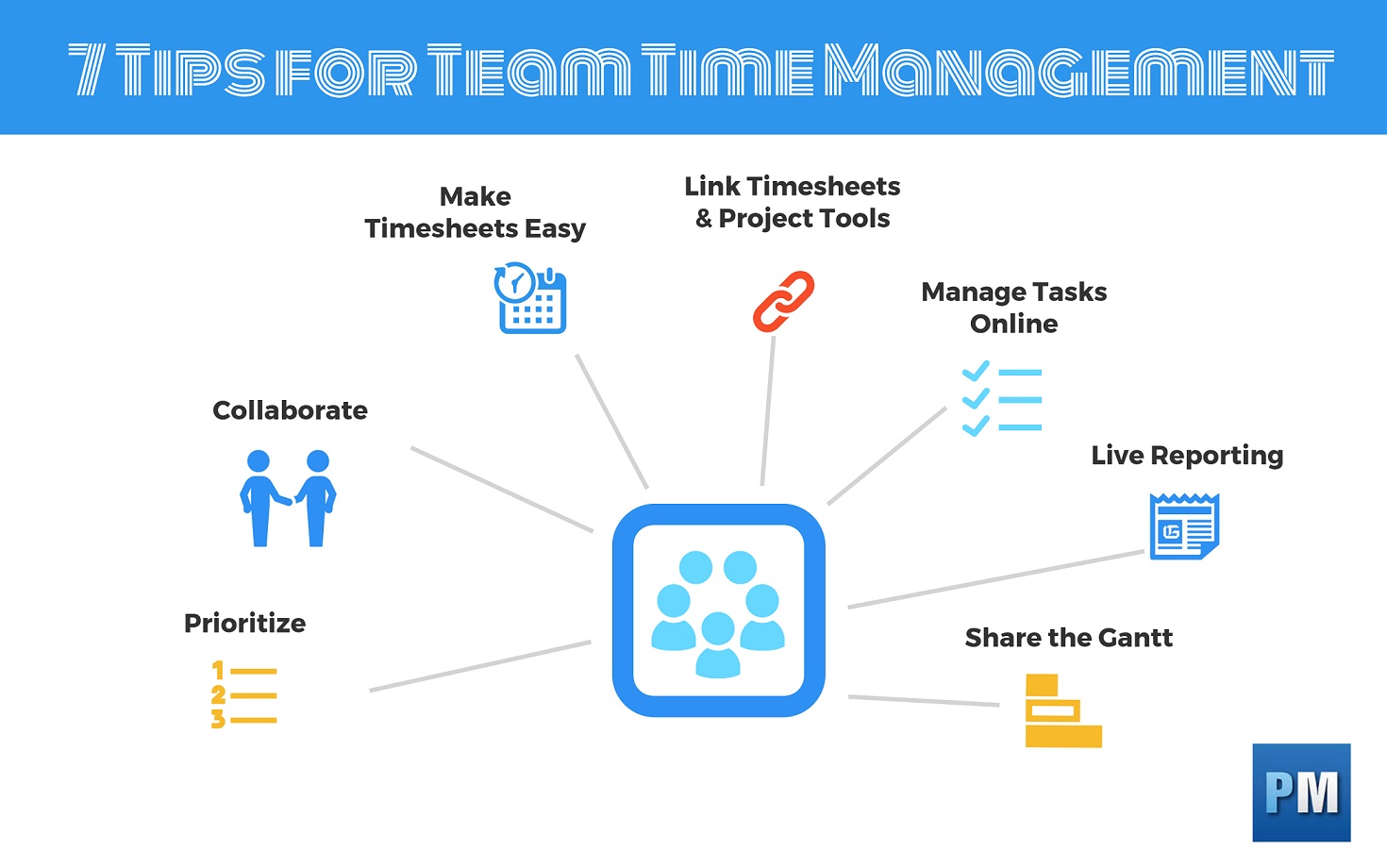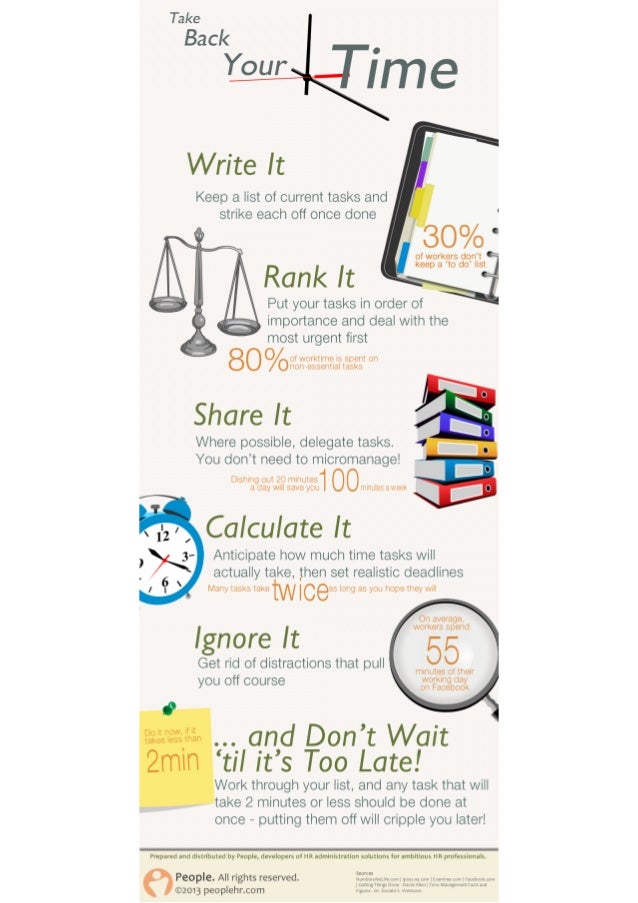Time management is the process of planning and exercising conscious control of time spent on specific activities, especially to increase effectiveness, efficiency, and productivity. It involves the balancing of various demands upon a person relating to work, social life, family, hobbies, personal interests, and commitments with the finite nature of time. Using time effectively gives the person "choice" on spending or managing activities at their own time and expediency. Time management may be aided by a range of skills, tools, and techniques used to manage time when accomplishing specific tasks, projects, and goals complying with a due date. Initially, time management referred to just business or work activities, but eventually, the term broadened to include personal activities as well. A time management system is a designed combination of processes, tools, techniques, and methods.
Time management is usually a necessity in any project management as it determines the project completion time and scope. It's all about getting the right things done in less time. It's what helps you get ahead in your career, deliver your projects successfully, or even get a promotion with a pay increase—that correct focus is like a workout.
It might be tough but it's necessary to stay on pace with the activities that add the most benefit to your projects and your clients. Not only do effective time management skills allow you to get better results at work, but it also help you outside of your office, too. When there's more of you left for the rest of your life, trust me – your work will improve. While ACC does not advocate for an obsessive, micro-managing approach to a student's daily life, we do believe it's important for them to set goals and learn to be effective time managers. In this article, we'll discuss why time management matters, and list several techniques to help students learn to prioritise and manage time effectively.
Stave off the "Sunday scaries" by planning out your week. Marie Poulin, a workflow consultant, spends some time on Sunday evenings plotting out how she will spend her workweek. She uses time blocks in Google Calendar to first map out what she calls "mind, body spirit" time for self-care.
She also uses a time-management strategy called the Pomodoro Technique, which involves breaking down projects into tasks and focusing on them in 25-minute intervals. "I think a productive day always starts with a productive week," Ms. Poulin says. This method also works to manage time because you can't see so far into the future.
In that same manner, you can train your brain and mind to grow stamina for studying. If you want to learn a new language, you can do daily lessons, and over time, you'll realize how much you've learned as all the short lessons accumulate. Between studying for exams, enrolling in new classes, reading books, writing papers, and making time for office hours, there's a lot of tasks to complete as a student.
Time management experts recommend using a personal planning tool to improve your productivity. Personal planning tools include planners, calendars, phone apps, wall charts, index cards, pocket diaries, and notebooks. Writing down your tasks, schedules, and items to remember can free your mind to focus on your priorities.
Auditory learners may prefer to dictate their thoughts instead. The key is to find one planning tool that works for you and use that tool consistently. With the Eat the Frog method, you can ensure you're getting to your most important work every day. To get started with this time management strategy, make sure you're tracking your work and priorities in a centralized tool.
Look for a way to connect yourdaily tasks to company goals. That way, you can better identify which tasks to prioritize every day, and make sure you get those to-dos done first. Then, once you've eaten your frog for the day, you can move on to the rest of your work. To use the Pomodoro method, you need a timer, a prioritized to-do list, and a "snooze" feature on your notifications. Start by setting your timer for 25 minutes, and try to spend that time exclusively working on a task—avoid checking your text messages or social media if possible.
Time blockingis similar to timeboxing, but instead of scheduling specific time for each individual task, you'll practice blocking off set periods of your calendar for related work. Time blocking can help you dedicate more time to flow anddeep workby allowing you to focus without being interrupted. Project creep, slipping deadlines, and a to-do list that seems to get longer each day — these experiences are all too common in both life and work. Look no further than large-scale surveys that routinely find time management skills among the most desired workforce skills, but at the same time among the rarest skills to find. To-do lists and a calendar should be your basictime management tools.
Use them both and, as mentioned, schedule meetings and time slots on your calendar for working on the important tasks in complete peace. The other necessary tools for good time management are a note-taking app and a good time tracker. Distraction prevention and habit tracking tools can also be extremely valuable. Teachers need to take measures to properly manage time for an effective classroom environment. Time management is an important part of providing quality education and meeting the needs of every student. If you are interested in using software to plan and organize your time, you can read our suggested list of the best time management tools for teachers.
By assessing what needs to be achieved within a given timeframe, tasks can be rated according to their importance. Setting priorities for each day, week, month and year can help students accomplish their goals. It also helps to ensure activities that are vitally important but not urgent – such as personal devotions, adequate sleep and exercise – are given precedence. Some people like to prioritise easy tasks for early in the day and use the boost to move forward. There is certainly no shortage of advice — books and blogs, hacks and apps, all created to boost time management with a bevy of ready-to-apply tools.
Yet, the most frustrating reality for individuals trying to improve their time management is that no matter how effectively designed these tools might be, they are unlikely to work. Simply put, these tools presume a person's underlying skill set, but the skills comprising time management precede the effectiveness of any tool or app. For example, would anyone seriously expect that purchasing a good set of knives, high-end kitchen equipment, and fresh ingredients would instantly make someone a five-star chef?
Similarly, using a scheduling app without the prerequisite time management skills is unlikely to produce positive time management outcomes. Setting defined goals for yourself throughout your work, such as accomplishing a specific task or a segment of a job, is an essential part of time management. Setting a series of realistic goals and a series of optimal goals allows you to feel each accomplishment throughout your day as a source of motivation and encouragement.
Goal-setting can work in tandem with stress management to help you increase your efficiency on an hourly and daily basis. Utilize your calendar for more long-term time management. Write down the deadlines for projects, or for tasks that are part of completing the overall project. Think about which days might be best to dedicate to specific tasks. For example, you might need to plan a meeting to discuss cash flow on a day when you know the company CFO is available.
Organizing your days may seem like a daunting task, particularly in an age when there are more distractions than ever. In 2019, RescueTime, a time management software program, analyzed 185 million working hours of anonymized and aggregated data from its users. It found that workers averaged just two hours and 48 minutes of productive device time a day. Productivity and burnout management advisers say you can make the most of your productive hours by planning your workday in advance. The care and attention you give yourself is an important investment of time. Scheduling time to relax or do nothing helps you rejuvenate physically and mentally, enabling you to accomplish tasks more quickly and easily.
Be sure to monitor your screen time as a part of your digital wellbeing, setting boundaries to stay healthy. To improve your digital wellbeing, set time limits or utilizing built-in software on electronic devices such as phones and tablets to help maintain your digital wellness. Blue light blockers and grayscale mode may also help you improve your digital wellbeing. Set a time each night to shut off all digital devices to give your mind time to relax; this can also help improve your sleep schedule. Many popular time management techniques are based on practical approaches that aim to complete tasks within a specific timeframe and in a specific manner. Over the years, various methods have emerged that help to improve management skills and boost efficiency.
He had something of an epiphany after considering that we are all going to die, and it transformed his time management philosophy. He now wakes daily at 9am after a nine-hour sleep, works for four hours per day, and goes to the gym and reads daily. He uses several time management strategies, including to-do lists, calendars and timers, but not to stuff his life with work. Rather, he says, these tools "should allow you to take control of your life, and then structure your work around it". There are a couple reasons why this such an effective time management trick.
For starters, you usually have the most amount of energy in the AM. So it's better to tackle these tasks when you're not drained. Also, you can use that feeling of accomplishment to get through the rest of the day.
Set yourself up for success by scheduling low-priority tasks for Fridays and other low-energy times. Remember, your energy and creativity levels fluctuate throughout the week. Complete creative and demanding tasks on Tuesday and Wednesday.
Schedule meetings for Thursday, when your team's energy starts to decline. Use your Fridays and Mondays for planning and networking. The ability to recognize your personal stress levels and make accommodations within your work can keep your level of stress low. Rewarding yourself, delegating your tasks and taking breaks when needed allows you to stay focused and motivated as you accomplish each of the daily tasks on your schedule.
Understanding your stress levels will also help you effectively use breaks during your day and know when to turn down tasks that will overwhelm you. Managing your time well can help you improve in your career. Organizing each day helps you to complete work on time, stay engaged during important meetings and give you space to be creative and proactive in your tasks. Having strong time-management skills can ultimately lead to accomplishing key goals and advancing in your position.
Although the career path seems to have too much work for the number of hours in a day, it is possible to manage the situation and clear extra time in the classroom and outside of class. With effective time management skills, teachers can increase their productivity and provide a better education for their students. Small steps like this can help you get your to-do list checked off faster and leave you feeling accomplished at the end of the day.
Delegating means assigning responsibility for a task to someone else, freeing up your time for tasks that require your expertise. Identify tasks others can do and select the appropriate person to do them. Select someone with the appropriate skills, experience, interest, and authority needed to accomplish the task. Define the task and your expectations while allowing the person some freedom to personalize the task. Check how well the person is progressing periodically and provide any assistance, being careful not to take over the responsibility.
Finally, reward the person for a job well done or make suggestions for improvements if needed. Another way to get help is to "buy" time by obtaining goods or services that save time. For example, paying someone to mow your lawn or clean your house, or joining a carpool for your children's extracurricular activities frees time for other activities. The time-savings from hiring someone for specialized projects is often worth the cost. It's interesting to know that planning my day in advance has been proven by other people to be the most effective technique when it comes to time management. I seem to plan every activity I'd have for the rest of the day but I always end up not accomplishing anything on my schedule.
It might be a good idea to just arrange everything beforehand, including having a meal kit delivered to my apartment, so I can focus on the projects I need to finish. Get up super early if you're most productive in the morning. Or stay up late at night if you prefer to work in the darkness. But don't force yourself to change your habits just because it is said that people reach productivity at certain hours.
Whatever time management strategies work for some people, may not work for you. And so, it's important to know how to fit your work and daily activities into it. If you struggle with managing your work or want to experiment with your current methods, check out our list ofthe most effective and proven time management techniques. Ultimately, time management is more of a state of mind than anything else.
To effectively manage your time, prioritize your work so you know to work on each day. Instead of letting your to-do list dictate your priorities, focus your attention on your intention to really drive impact. One of the easiest ways to build your time management skills is to incorporate a tried-and-true time management strategy into your daily routine.
168 Hours Time Management Activity Time management strategies help you set time limits on work, tackle one task at a time, and schedule your day with more intention. A habituated systematic process becomes a device that the person can use with ownership for effective time management. Excessive and chronic inability to manage time effectively may result from attention deficit hyperactivity disorder or attention deficit disorder . Diagnostic criteria include a sense of underachievement, difficulty getting organized, trouble getting started, trouble managing many simultaneous projects, and trouble with follow-through. Daniel Amen focuses on the prefrontal cortex which is the most recently evolved part of the brain. It manages the functions of attention span, impulse management, organization, learning from experience, and self-monitoring, among others.
Some authors argue that changing the way the prefrontal cortex works is possible and offer a solution. Time management is the process of organizing tasks, managing deadlines, and coordinating downtime. It is important to practice effective time management to help maximize your day and reduce stress from demanding schedules. We've listed three different time management techniques you can try below to help improve your time management skills and boost productivity. A software program such as Outlook, for instance, lets you schedule events easily and can be set to remind you of events in advance, making your time management easier. A mastery of time-management skills enables a professional to accomplish their daily responsibilities quickly and effectively.





















